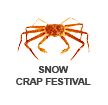Deeper Meanings through Konglish

Living in Korea, it’s a daily occurance to come across gems of accidental English riddled with a tiny – but catastrophic – mistakes. Many people call this “Konglish,” which is wrong since Konglish is the use of borrowed English words in Korean. But I would like a to make an amendment to the definition of “Konglish:”
Accidental English that holds deeper meaning.
Here is an example of what I mean:
I was walking to work and I saw this. Of course I thought it was funny not only because it’s uncouth, but it states a fact that we so rarely consider: what we’re eating.
Sure we may make jokes about “mystery meat” in our tacos and burgers and so on. But in the end what that does is just make things easier to eat. I have no problem eating meat. But describe it as broiled small intestine of cattle rather than “beef almost kosher sausage,” it will give me pause.
Here’s another example from the lovely town of Uljin:
 I laughed. I was doing research about the nuclear power plant there for a book I’m writing and then I come across that picture. I couldn’t help it. I sympathize: try saying “Snow Crab Festival” three times fast.
I laughed. I was doing research about the nuclear power plant there for a book I’m writing and then I come across that picture. I couldn’t help it. I sympathize: try saying “Snow Crab Festival” three times fast.
Then I started to consider, what exactly happens at a snow crab festival besides eating crabs?
…tourists and residents [get] to mingle in the celebrations through a variety of experiences including crab taste samplings, crab cooking demonstrations, opportunities to board boats to observe crab-catching as well as to view the sunrise from the deck, and auctions of snow crabs. [From here]
I’m not all that sure the “Snow Crab Festival” is a big hitting event. It reminds me of tiny festivals from small towns everywhere, including near to where I grew up.
And that’s the thing: perhaps this “crap” slip is just an admittance that the festival is just a chance for the locals to bring in people from elsewhere under the guise of a not so special event.
Just consider the deeper meaning to this newscast:

